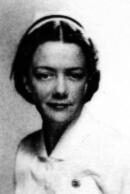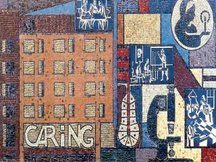Deaconess Hospital 1896 - 1996
A tradition of excellence and compassion
A future of discovery and promise
A tradition of excellence and compassion
A future of discovery and promise
In 1896, when founding Deaconess Mary E. Lunn described what is now Boston's Deaconess Hospital, she envisioned a place where "science and kindliness unite in comabting disease." From its roots in a coverted brownstone on Massachusetts Avenue, the Deaconess has grown into a world-renowned health-care facility with a reputation for providing advanced treatment and exceptional quality care to the most seriuosly ill patients.
By the early 1900s the hospital had moved to its current location in the Longwood Medical Area, home to many of the world's preeminent medical centers. Here the Deaconess flourished and broadened its mission to embrace both medical research and education, becoming a major teaching hospital of Harvard Medical School in the early 1980s.
Today the Deaconess is distinguished among its colleague institutions by its focus on the most serious and complex illnesses. The hospital is internationally recognized as a leader in the research and treatment of diabetes, cardio-vascular disease, cancer and infectious diseases, and behavioral and psychiatric disorders, as well as organ transplantation.

Ellen D. Howland, CA. 1956
The granddaughter of a New Bedford Whaling captain, Howland graduated from the New England Deaconess Hospital School of Nursing in 1942 and served the hospital as Director of Nursing Service and the School of Nursing from 1956 until her retirement in 1985.
